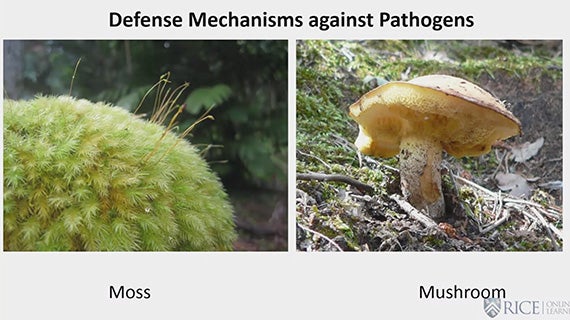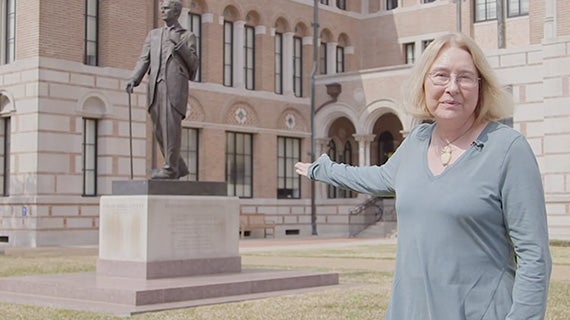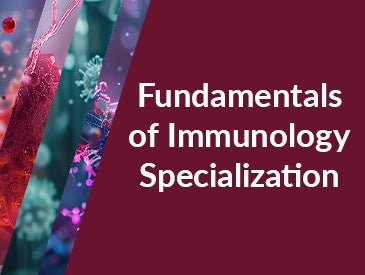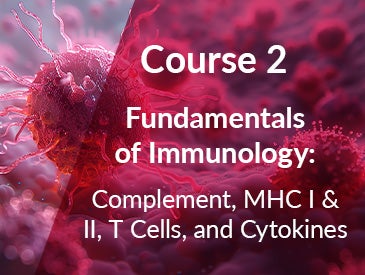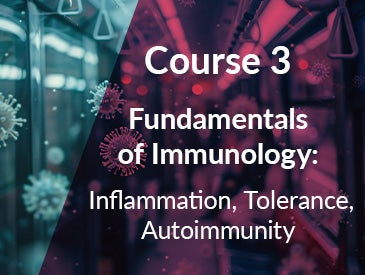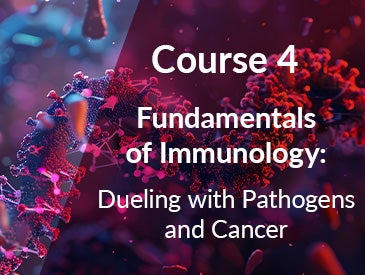Fundamentals of Immunology: Innate Immunity and B-cell Function (Course 1)
Begin an enlightening journey with Course 1 of our four-part Fundamentals of Immunology Specialization. Each course builds on the last, guiding you through the body's incredible defense mechanisms. In this first course, you'll gain the essential vocabulary and concepts needed to engage with the medical community, presented in a memorable context.
Fundamentals of Immunology immerses you in the core functions of the adaptive and innate immune systems. Early lectures use metaphors, cartoons, and models to make learning about cells, tissues, and organs engaging and easy to understand.
Who should attend:
- Premed and medical students seeking foundational knowledge in immunology
- Individuals with immune diseases or cancer looking for deeper insights
- Anyone curious about the immune system and the role of vaccines
You will be able to:
- Recall and explain the foundational concepts necessary for understanding immune function using tables, cartoons, models, and metaphors to aid retention
- Explain the interaction of innate and adaptive immunity in the context of public health
- Identify and apply the details of antibody structure, function, genetic coding, and biochemical triggers of immunoglobulin synthesis effectively
LECTURE SAMPLES
MEET YOUR RICE PROFESSOR

Alma Moon Novotny, Ph.D.
Dr. Alma Novotny earned her PhD from Purdue University in Developmental Biology under the direction of Michael Forman. She has taught college courses in plant and animal sciences, genetics, and introductory cell and developmental biology for over forty years. She has also written test question banks and contributed questions to both the MCAT and the GRE Advanced Exam in Biochemistry, Cell, and Molecular Biology. Since joining Rice University in 2000, she has taught immunology and is a three-time recipient of the George R. Brown Award for Superior Teaching.
EXPLORE RELATED IMMUNOLOGY COURSES
CONTACT
Any questions? Please e-mail RiceOnline@rice.edu
CONTACT
Any questions? Please e-mail RiceOnline@rice.edu

